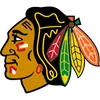
 Penguins
Penguins Blackhawks
Blackhawks Penguins
Penguins Blackhawks
Blackhawks
 Penguins
Penguins Blackhawks
Blackhawks
 Penguins
Penguins Blackhawks
Blackhawks
 Penguins
Penguins Blackhawks
Blackhawks
 Penguins
Penguins Blackhawks
Blackhawks
 Penguins
Penguins Blackhawks
BlackhawksFull Schedule
4/8
8:00 pm
CHSN+
4/8
10:30 pm
CHSN+
4/8
11:00 pm
CHSN
4/9
10:00 pm
CHSN
4/10
12:00 am
4/10
5:00 pm
CHSN
4/10
11:00 pm
ESPN+
4/11
11:30 pm
CHSN
4/12
12:00 am
4/12
8:00 pm
CHSN
4/12
11:00 pm
ESPN+
4/13
5:00 pm
4/13
6:00 pm
CHSN
4/14
11:00 pm
ESPN+,Amazon Pr..
4/15
11:00 pm
CHSN ESPN+
4/15
11:30 pm
CHSN
4/16
11:30 pm
CHSN
4/17
6:00 pm
CHSN
4/18
11:00 pm
CHSN
4/19
8:00 pm
CHSN
4/20
5:30 pm
CHSN
4/21
3:00 pm
CHSN
4/22
11:30 pm
CHSN
4/23
11:30 pm
CHSN
4/24
5:00 pm
CHSN
4/26
2:00 am
CHSN
4/26
8:00 pm
CHSN
4/27
8:00 pm
CHSN
4/29
11:30 pm
CHSN
4/30
11:30 pm
CHSN
5/1
6:00 pm
CHSN
5/2
11:30 pm
CHSN
5/3
6:00 pm
CHSN
5/4
6:00 pm
CHSN
5/5
11:30 pm
CHSN
5/6
11:30 pm
CHSN
5/7
11:30 pm
CHSN
5/8
6:00 pm
CHSN
5/9
11:30 pm
CHSN
5/10
11:00 pm
CHSN
5/11
6:00 pm
CHSN
5/13
10:30 pm
CHSN
5/14
11:00 pm
CHSN
5/15
4:30 pm
CHSN
5/16
6:00 pm
CHSN
5/17
6:00 pm
CHSN
5/18
6:00 pm
CHSN
5/19
CHSN
5/20
11:30 pm
CHSN









